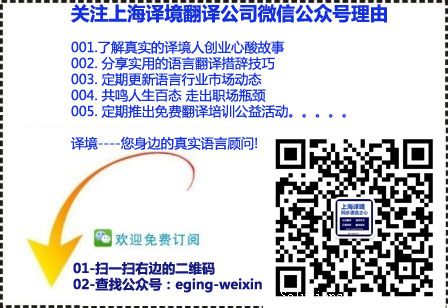E-ging Solutions is one of the largest Shanghai translation companies .if you’d like to know more about how we can help you, please don’t hesitate to contact us via through our website.
From Babel to Babel Fish
There have been a number of books written recently about the history of translation. What certainly is true is that as we move from the age of the tower of Babel (where the Bible tells us different languages were first introduced) to the age of Babel Fish (and other instant translation services) there is a growing need for translation. As the internet spreads, and globalisation moves on - the need for translation increases. Language schools and courses, like St Georges language courses in London, may help you to learn Spanish in London but theorists throughout the ages have insisted that a good translator must not only know the language but understand the culture they are translating.
Early history
The word translation itself derives from a Latin term meaning "to bring or carry across". The Ancient Greek term is 'metaphrasis' ("to speak across") and this gives us the term 'metaphrase' (a "literal or word-for-word translation") - as contrasted with 'paraphrase' ("a saying in other words"). This distinction has laid at the heart of the theory of translation throughout its history: Cicero and Horace employed it in Rome, Dryden continued to use it in the seventeenth century and it still exists today in the debates around "fidelity versus transparency" or "formal equivalence versus dynamic equivalence". The first known translations are those of the Sumerian epic Gilgamesh into Asian languages from the second millennium BC. Later Buddhist monks translated Indian sutras into Chinese and Roman poets adapted Greek texts.
Arabic scholars
Translation undertaken by Arabs could be said to have kept Greek wisdom and learning alive. Having conquered the Greek world, they made Arabic versions of its philosophical and scientific works. During the Middle Ages, translations of these Arabic versions were made into Latin - mainly at the school in C?rdoba, Spain. These Latin translations of Greek and original Arab works of learning helped underpin Renaissance scholarship.
Religious texts
Religious texts have played a great role in the history of translation. One of the first recorded instances of translation in the West was the rendering of the Old Testament into Greek in the 3rd century BC. A task carried out by 70 scholars this translation itself became the basis for translations into other languages.
Saint Jerome, the patron saint of translation, produced a Latin Bible in the 4th century AD that was the preferred text for the Roman Catholic Church for many years to come. Translations of the Bible, though, were to controversially re-emerge when the Protestant Reformation saw the translation of the Bible into local European languages - eventually this led to Christianity's split into Roman Catholicism and Protestantism due to disparities between versions of crucial words and passages. Martin Luther himself is credited with being the first European to propose that one translates satisfactorily only toward his own language: a statement that is just as true in modern translation theory.
Modern Theory and Practice
Whilst industrialisation has led to the formalization of translation for business purposes since the eighteenth century it is, perhaps, the internet and mechanical translation that has really revolutionised the field. In terms of theory Lawrence Venuti's call for "foreignizing" strategies marks a call for fidelity over transparency in translation. The two poles of metaphrase and paraphrase, however, still set the terms of debate from the age of Babel to that of Babel Fish.


